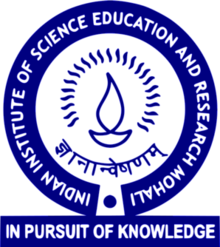Electromicrobiology of the extreme environments
Electromicrobiology is an emerging subdiscipline of environmental microbiology which deals with the study of interactions or extracellular electron transfer (EET) processes between the microorganisms and the solid-state electron acceptors or donors, and their implications in different environments. The microorganisms that use EET to achieve their respiratory and metabolic processes are referred to as electroactive microorganisms. These are classified further into two groups, Viz., exoelectrogens, and electrotrophs based on outward and inward EET, respectively. Mostly normal habitats have been explored for the electroactive microorganisms so far. Extreme environments remain poorly studied due to difficulties in sampling, conducting in situ experiments, and lack of established enrichment protocols. Very few pure culture isolates of extreme electroactive microorganisms are known and available in the microbial culture repositories. Studying extreme Electromicrobiology is not only essential to understand the role of electroactive microorganisms in the biogeochemical cycling of major elements, but it could also offer several opportunities to develop novel microbial electrochemistry-driven biotechnological applications, and have implications to Astrobiology.
We aim to contribute to advance the Electromicrobiology discipline through the following research activities:
to understand the diversity of extreme electroactive microorganisms
to isolate the novel extreme electroactive microorganisms, and
to elucidate their EET mechanisms and associated components
We are currently working mainly on the electroactive haloalkaliphiles from the Lonar lake. We use various anaerobic microbiology and electrochemistry tools and techniques, along with microscopic and metagenomics analyses extensively in these research activities.
Renewable electricity-driven bioproduction of chemicals from CO2
Anthropogenic CO2 emissions are amongst the major concerns in the context of global warming and climate change. Every year approx. 36 gigatons of CO2 is emitted from the point sources. If reutilized or recycled through various Carbon Capture and Utilization (CCU) approaches, the industrial CO2 can be a valuable carbon source for the production of chemicals, fuels, and materials. One of the emerging CCU approaches is the microbial electrosynthesis (MES), in which electricity is used to drive the microbial growth and bioconversion processes in bioelectrochemical systems. Although it offers several advantages over other CCU approaches, high cost and less energy efficiency and difficulty in the production of high-value chemicals are some of the critical challenges associated with MES. To address some of these issues, we are currently working on the following research topics:
Investigations on CO2 fixing lithotrophs adapted to the saline growth conditions
Direct use of the industrial CO2 containing emissions as a feedstock for bioproduction
Interlinking of MES with other processes for the production of high-value multicarbon chemicals
To facilitate these research activities, we use various anaerobic microbiology, electrochemistry, analytical, and bioengineering tools and techniques.
Integrated biological and bioelectrochemical processes for wastewater treatment and resource recovery
Rapid urbanization and population growth have led to an increase in the production of domestic wastewater thereby putting enormous pressure on the existing centralized wastewater treatment plants. Upgrading the existing treatment plants is not straightforward due to various technical challenges and high costs. Decentralized systems have therefore emerged as the promising alternative to the centralized systems. At the same time, the increasing scarcity of resources is driving extensive research efforts for transitioning the wastewater treatment plants into the resource recovery facilities. The existing centralized and decentralized treatment plants are mostly costly and energy or chemical-intensive, based on the use of multiple treatment units, suffer due to operational complexity, offer no or minimal resource recovery options, and are also non-upgradable due to complex designs. All these factors make it challenging to implement or integrate emerging resource recovery and wastewater treatment technologies in the existing infrastructure. The development of low-cost, less energy and chemical-intensive, and easy-to-operate technologies is therefore desired for the efficient management of wastewaters at the point sources. In this context, our research activities are aimed at:
Developing a novel technology platform based on the integration of traditional biological and emerging bioelectrochemical processes for domestic wastewater treatment.
Understanding the complex interplay between different microbial groups and processes involved in the removal of various wastewater constituents.
Here we use tools and techniques for the characterization of wastewater constituents along with bioelectrochemistry, microbiology, and reactor engineering approaches.

